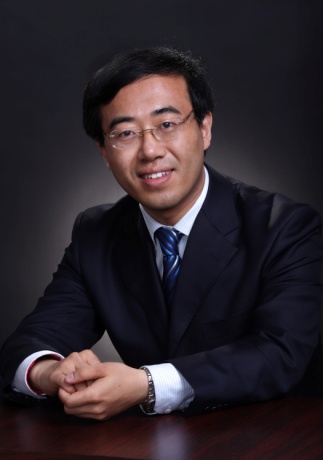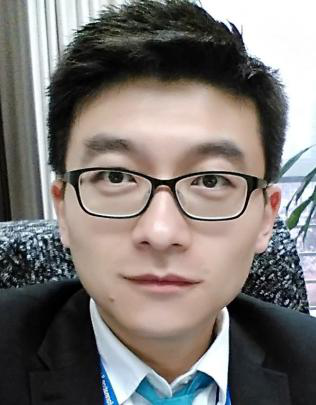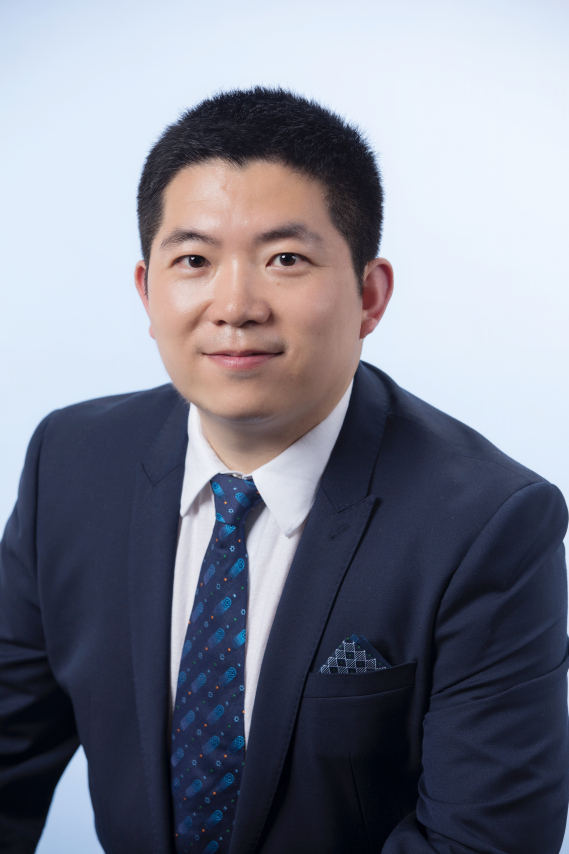1. 承办院系School/Department host:
人工智能国际治理研究院(I-AIIG)
2. 挑战主题Theme:
人工智能怎样助力构建智能和可持续的未来?
How AI can help us build an intelligent and sustainable future?
3. 导语/背景情况概述 Background:
在此次抗击新冠肺炎疫情中,人工智能技术在病毒检测和诊断、疫情追踪、面部识别以及日常监测上发挥了关键支撑作用。然而,伴随人工智能技术的广泛应用,所带来的潜在风险,如数字鸿沟加剧、数据隐私问题以及自动化武器开发等也需要关注。因此,我们需要引导技术实现可持续发展目标,使人工智能实现普惠。本次马拉松将吸引全球致力于应用人工智能技术促进可持续发展的学生。
The COVID-19 pandemic has accelerated the proliferation of Artificial Intelligence (AI) technologies in public health, such as contact tracing, facial recognition, virus detection and vaccine development. As we start to reap the benefits of AI technologies to combat the pandemic, we also need to recognize the potential risks posed by such technologies, such as the widening digital divide, data privacy concerns, and the development of autonomous weapons. Therefore, more efforts and investments are needed to steer technology towards achieving the Sustainable Development Goals and make more AI beneficial for all. This Hack aims to bring teams of passionate young people from across the world together to embark on a learning journey to explore how we can harness AI technologies to tackle real-world problems.
4. 该领域比较关注的问题 Our key topics of interest:
1) AI and Climate Change(AI与气候变化)
2) AI and Biodiversity (AI促进生物多样性的发展)
3) AI and COVID-19 (AI助力抗疫)
4) AI and Education (AI与教育)
6) AI and Digital Inclusion (AI与数字包容)
5. 主讲老师 Hack Leaders
梁 正

南开大学经济学博士,麻省理工学院富布莱特研究访问学者(2012),现任清华大学公共管理学院教授,清华大学人工智能国际治理研究院副院长,清华大学中国科技政策研究中心副主任,清华大学科技发展与治理研究中心学术委员会秘书长,兼任中国科学学与科技政策研究会理事、副秘书长,公共管理专业委员会副主任,中国知识产权研究会高校知识产权专业委员会副主任,中国城市经济学会城市公共经济与政策专业委员会副主任,中国国际科学技术合作协会理事,中国技术经济学会知识产权专委会理事,中国科技体制改革研究会理事,《科学与管理》、《中国标准化》杂志编委。主要研究方向为科技创新政策、研发全球化、标准与知识产权、新兴技术治理。在National Science Review, Journal of Informetrics, World Economy等国内外学术期刊上发表论文超过70篇,出版各类著作30余部,先后获第八届高等学校科学研究优秀成果一等奖,中国科学学与科技政策研究会优秀青年奖等多项奖励。参与完成国家中长期科技发展规划战略研究,中科院知识创新工程试点评估、科技部—OECD合作中国国家创新体系研究,国家自然科学基金“十二五”、“十三五”发展规划战略研究多项国家级重大咨询和国际科技合作重点课题。
Dr. LIANG Zheng now serves as the Professor of the School of Public Policy and Management, Tsinghua University, as well as the research fellow and vice president of the Institute for AI International Governance, Tsinghua University (AIGI), and the research fellow and deputy director of China Institute for Science & Technology Policy at Tsinghua University (CISTP). Dr. Liang obtained his doctor’s degree of economics at Nankai University (2003) and completed a senior executive training program on leadership at Kennedy School of Government, Harvard University (2010). In 2012, he visited the MIT Industrial Performance Center (MIT IPC) as a Fulbright Visiting Research Scholar for one year. The main areas of his research now focus on Science, Technology and Innovation Policy, Globalization of R&D, IPRs and Standardization, Emerging Technology and Innovation Governance. Besides academic publishing on peer review journals such as National Science Review, Journal of Informetrics, and World Economy, Dr. Liang also participated in some important research projects such as the Strategic Research for National Medium and Long Term Science and Technology Development Program (MLP) of China. He was previously a member of the National Innovation Survey Expert Group (2014-2017), as well as a member of the Sino-US Innovation Dialogue Expert Group (2015-2018).
6. 导师 Mentors
于洋

清华大学交叉信息研究院助理教授、清华大学人工智能治理研究院人工智能国际学术交流项目主任。2016 年 6 月毕业于斯坦福大学,获得博士学位。他的研究兴趣聚焦于算法和平台产业监管、人工智能治理等。
YU Yang is an assistant professor at the Institute for Interdisciplinary Information Sciences of Tsinghua University, and director of international academic exchange program at the Institute for AI International Governance of Tsinghua University. He graduated from Stanford University in June 2016 with a doctorate. His research interests include algorithms and platform industry regulation, artificial intelligence governance.
曾毅

清华大学人工智能国际治理研究院人工智能伦理与治理方向首席专家;中国科学院自动化研究所研究员、类脑智能研究中心副主任、中英人工智能伦理与治理研究中心联合主任;中国科学院大学岗位教授、博士生导师;北京智源人工智能研究院人工智能伦理与可持续发展中心主任;清华大学战略与安全研究中心客座研究员;国家新一代人工智能治理专委会委员;联合国教科文组织人工智能伦理特别专家组专家;世界卫生组织健康领域人工智能伦理与治理专家组专家。主要研究方向为:类脑人工智能、人工智能伦理与治理、人工智能哲学。
ZENG Yi is the Chief Scientist in AI Ethics and Governance, Institute of AI International Governance, Tsinghua University. He is a Professor at Institute of Automation, Chinese Academy of Sciences, serving as Co-director of China-UK Research Centre for AI Ethics and Governance, and Deputy Director of Research Center of Brain-inspired Intelligence. He is the founding director of Research Center for AI Ethics and Sustainable Development at Beijing Academy of Artificial Intelligence. He is a Professor at the University of Chinese Academy of Sciences and an Adjunct Research Fellow at the Center for International Security and Strategy, Tsinghua University. Zeng Yi serves as a board member for the National Governance Committee for the New Generation Artificial Intelligence, is an expert in the UNESCO Ad-hoc Expert Group in AI Ethics, and an expert in the Expert Group of AI Ethics and Governance in Health, World Health Organization.
7. 承办院系简介 Introduction of School/Department host
清华大学人工智能国际治理研究院(Institute for AI International Governance, Tsinghua University,THUAIGI)是2020年4月由清华大学批准成立的校级科研机构。依托清华大学在人工智能与国际治理方面的已有积累和跨学科优势,研究院面向人工智能国际治理重大理论问题及政策需求开展研究,致力于提升清华在该领域的全球学术影响力和政策引领作用,为中国积极参与人工智能国际治理提供智力支撑。
研究院通过举办人工智能国际高端论坛、学术会议与系列讲座,发布人工智能国际治理研究报告、开展自由研究和接受委托课题等形式,研判人工智能技术发展与应用对国家、社会与人类的影响,并探寻如何建立公正合理的人工智能国际治理体系与秩序。重点围绕人工智能国际治理理论与前沿实践,人工智能全球治理合作动因、人工智能国际治理体系未来方向开展研究,并就人工智能领域世界秩序、战略格局、安全形势、国际关系等重点问题进行前瞻分析。基于文明平等、文明对话、文明互鉴的理念,研究院积极开展不同形式的国际交流与合作,宣介、阐释和传播国家相关发展理念与内外政策的基本主张,发挥中国高校智库在国际交往中的话语权建设作用。
The Institute for AI International Governance of Tsinghua University (I-AIIG)) is a university-level research institute established by Tsinghua University in April 2020. Leveraging Tsinghua's existing resources and interdisciplinary advantages in AI and international governance, I-AIIG conducts research on major theoretical issues and policy needs of AI international governance. It aims to enhance Tsinghua University's global academic influence and policy leadership in this field and provides intellectual support for China's active participation in AI international governance.
Through organizing international high-end forums, academic conferences and lecture series on AI, publishing research reports on international governance of AI, and conducting independent research and accepting commissioned projects, the Institute examines the impact of the development and application of AI technology on state, society and humanity as a whole, and explores how to establish a just and reasonable international governance system and order of AI.
The Institute focuses on the theory and frontier practice of international governance of AI, the motivations of AI global governance cooperation and the future direction of AI international governance systems, and conducts forward-looking analysis on key issues such as world order, strategic patterns, security and international relations in the field of AI. Based on the concept of equality, dialogue and mutual learning among human society, the Institute, as a Chinese university think tank, actively carries out different forms of international exchanges and cooperation to introduce, explain and communicate the basic propositions of China’s related national development concepts and domestic and foreign policies.